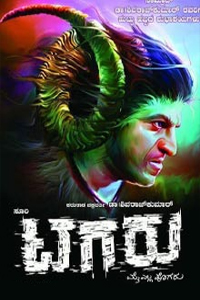Director Sai Prakash's latest offering "Maharaja" is made in the mould of a 1960s south Indian melodrama - like many of his earlier films. Though some of his earlier attempts have been successful, several of his films have bombed badly at the box office.
But Sai Prakash does not seem to want to change track and has found a producer in R.S. Gowda, who thinks just like him.
Gowda's previous film "Tavarige Baa Thangi", directed by Sai Prakash, had fared extremely well at the box office. It was another sentimental film made in the 1960s mould.
But in "Maharaja", the comedy sub-plot has no connection with the main theme and has been lifted from a successful Telugu film.
The story travels along predictable lines. There is the adopted son prepared to sacrifice everything for the family, a mother who weeps every time her adopted son is humiliated, a father who is confused over his own sons and the adopted son and the naturally-born sons feeling vengeful towards their adopted brother.
It needs no imagination to predict the climax, as the producer and director are well aware of the huge bonanza they got from the tragic ending of "Tavarige Baa Thangi".
Three songs have been lifted from the recently released Telugu film "Puttintiki Raa Challi". However, S.A. Raj Kumar's background score is good.










Comments